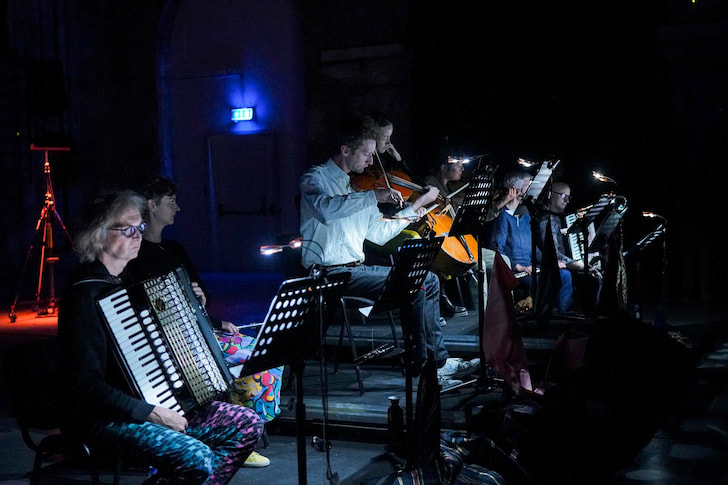The Venice Biennale’s origins can be traced back to 1893, when the city council decided to create a biennial art exhibition in honor of the silver wedding anniversary of King Umberto I and Margherita of Savoy. Although the first event was planned for 1894, it officially opened in 1895. Initially focused on Italian art, the Biennale gradually expanded to include artists from around the world in the following decades.
In 1930, the control of the Biennale passed from the city of Venice to the national government led by Benito Mussolini, which resulted in a bigger budget and restructuring. Three new events were established under the Biennale umbrella withing the next few years, the Biennale Musica being the first of them.
The inaugural Venice International Festival of Contemporary Music was held in 1930. Composers whose works were featured at the first Biennale Musica included Ernest Bloch (US), Ferruccio Busoni (Italy), Manuel de Falla (Spain), Paul Hindemith (Germany), Arthur Honegger (Switzerland), Zoltán Kodály (Hungary), Sergei Prokofiev (Russia), Igor Stravinsky (Russia), and William Walton (UK).
Initially held every two years, the Biennale Musica became an annual event in 1937. All Biennale events went on a hiatus in 1942 due to World War II. The Biennale Musica was resumed in 1947 and has been held every year since then. It takes place in late September and early October.
The program of the Biennale Musica includes performances by international soloists and ensembles, as well as lectures, performative lectures, round table discussions, conversations, and other exciting events and activities. The program also includes an awards ceremony where two awards are presented, the Silver Lion and the Golden Lion for Lifetime Achievement.
The Biennale College Musica is an important part of the International Festival of Contemporary Musics. It is a program of residency, research and production that gives several young composers and performers the opportunity to create new works under the tutelage of experienced composers and musicians, and then have them performed at the Biennale Musica.
Every year, the artistic director of the music department of the Biennale chooses a new theme to focus on. For example, the 2024 event, directed by Lucia Ronchetti, focused on the concept of absolute music. Coined by German composer Richard Wagner in 1846, the term absolute music refers to music that is not explicitly “about” anything. It is contrasted to program music that attempts to render an extramusical narrative. Even though Wagner himself was a vocal opponent of absolute music, the concept has since been explored by many musical theorists, composers and musicians, including the participants of the 2024 Biennale Musica.

Photo: labiennale.org

